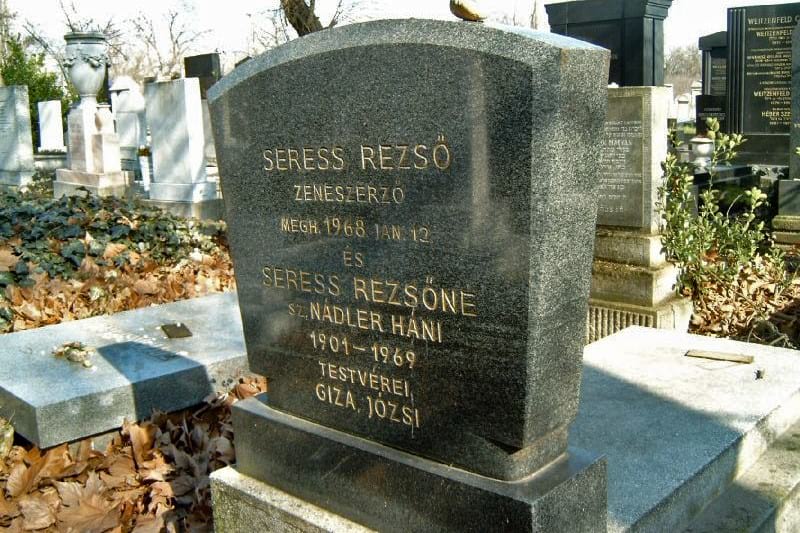Gloomy Sunday: The Hungarian Song that Claims its Listeners Lives
Share

Grave of Rezső Seress, composer of the Hungarian suicide song “Gloomy Sunday”. (Varga József / Wikimedia Commons)
Gloomy Sunday or Szomorú Vasárnap written by composer Rezso Seress and poet László Jávorin 1932, is a song about mortality. In it, the singer asks his dead lover to meet him at his soon-to-be funeral because he can’t bear to stay apart from her any longer; it appears as though the protagonist is completely broken, and wishes to end his life to be with his love. In general, it really is a heartfelt, remorseful song that tends to transport the listener to a rather uncomfortable space. That said, none could have predicted the dark history that was ready to tie itself to the track.

Rezso Seress, composer of Gloomy Sunday. (Wikimedia Commons)
Making of “Gloomy Sunday” the Hungarian Suicide song
As mentioned above, the song is a melancholic lament that many believe was written by László when his then-girlfriend passed away. However, others are inclined to think that this song was initially written by Seress, about war and catastrophe, and was later changed into a heartbreak ballad by Jávor. Whichever the case may be, the song soon came to known as “The Hungarian Suicide Song,” primarily because over the course of a few years more than 18 suicides would have established strong links to it.
That said, it must be noted that when the song first came out, it hardly made any impact on the music scene in Hungary, nor was it linked to any deaths. It was only when a refined version of the song, recorded by Pál Kálmar hit the market in 1936, that things started to go south.
Notable incidents and ban
The first suicide to be tied to the song was that of a Hungarian shoemaker, named Joseph Keller, who quoted lyrics to Gloomy Sunday in the suicide note that was left next to the scene. Thereafter, several bodies were discovered in the Danube river with the sheet music for the song clutched strongly in their hands. Further, two people apparently shot themselves while listening to a band perform the song live. The rest of the suicides linked to the song appear to have been committed by people while listening to it. Soon, the song became a big topic of discussion in the media and the Hungarian government saw no choice but to ban it in the country.
In a rather bizarre way, it only seems fitting, that almost 30 years later, Seress would end his life by suicide; paying the ultimate homage to the deathly legacy of his own song. The grief-stricken composer, fighting a losing battle with depression decided to jump off the highest storey of his apartment building in Budapest in 1968. While he survived the fall, later in the hospital, Seress eventually ended his life by choking himself with a wire. In his suicide note he wrote:
“I stand in the midst of this deadly success as an accused man. This fatal fame hurts me. I cried all of the disappointments of my heart into this song, and it seems that others with feelings like mine have found their own hurt in it.”
While we still can’t particularly comprehend what in the song drove people to end their lives, it seems like this is one urban legend we cannot deny.
For the lyrics of Gloomy Sunday or to listen to the song click here.
Enjoyed this article? Also, check out “Codex Gigas: The Dark Medieval Manuscript Dubbed as “The Devil’s Bible””.
Fact Analysis:
STSTW Media strives to deliver accurate information through careful research. However, things can go wrong. If you find the above article inaccurate or biased, please let us know at [email protected]













